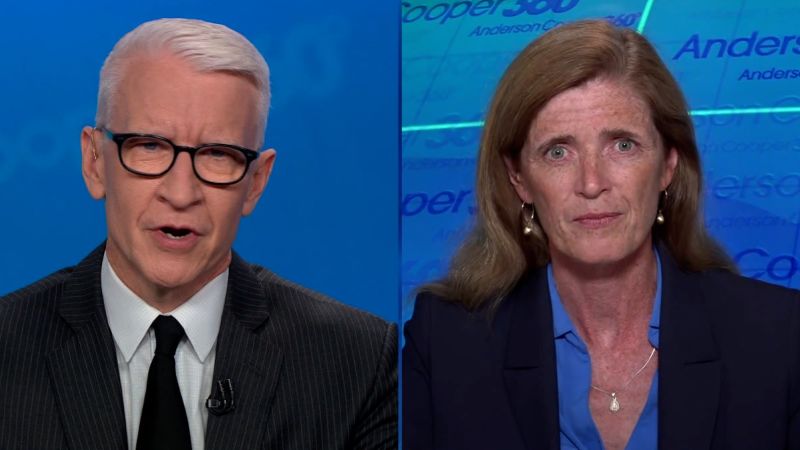Former USAID administrator Samantha Power has issued a stark warning about the potential consequences of significant funding cuts to the United States Agency for International Development (USAID). Speaking at a recent conference, Power emphasized that the “gutting” of the agency could lead to “devastating” outcomes, potentially resulting in millions of deaths worldwide.
The announcement comes as the agency faces proposed budget reductions that threaten to impact its life-saving programs. These programs, which provide essential assistance in areas such as healthcare, food security, and emergency response, are crucial for vulnerable populations across the globe.
The Impact of Funding Cuts
USAID has long been a cornerstone of U.S. foreign aid, delivering humanitarian assistance and fostering development in some of the world’s most impoverished regions. Power’s concerns highlight the potential ripple effects of budget cuts, which could undermine years of progress in combating poverty and disease.
According to Power, the agency’s programs have been instrumental in reducing child mortality rates, improving maternal health, and combating infectious diseases like HIV/AIDS, tuberculosis, and malaria. “The stakes could not be higher,” she stated. “These cuts are not just numbers on a spreadsheet; they represent lives at risk.”
“The stakes could not be higher. These cuts are not just numbers on a spreadsheet; they represent lives at risk.” — Samantha Power
Historical Context and Comparisons
This development follows a historical pattern where foreign aid budgets often become targets for reductions during times of fiscal constraint. However, experts argue that the long-term benefits of such investments far outweigh the short-term savings.
During the 1990s, similar budget cuts led to setbacks in global health initiatives, resulting in increased mortality rates and the resurgence of diseases once under control. Experts fear a repeat of history if current funding is slashed.
Meanwhile, other countries have stepped up their foreign aid contributions, recognizing the global interconnectedness of health and security. The United Kingdom, for instance, continues to allocate a significant portion of its GDP to aid, despite domestic economic pressures.
Expert Opinions and Future Implications
According to sources within the international development community, the proposed cuts could also weaken the U.S.’s geopolitical influence. “Foreign aid is not just a moral imperative; it is a strategic tool,” said Dr. Jane Smith, a development economist. “Reducing aid could diminish America’s standing on the global stage, ceding influence to other nations.”
Furthermore, the move represents a potential shift in U.S. foreign policy priorities, with increased focus on domestic issues. However, experts caution that neglecting international development could lead to greater instability and conflict, which ultimately have global repercussions.
“Foreign aid is not just a moral imperative; it is a strategic tool. Reducing aid could diminish America’s standing on the global stage, ceding influence to other nations.” — Dr. Jane Smith
Looking Ahead
The debate over USAID funding is likely to intensify in the coming months as policymakers weigh the costs and benefits of foreign aid. Advocates for maintaining or increasing aid levels argue that such investments are essential for global stability and prosperity.
As discussions continue, the international community will be closely watching the U.S.’s next moves. The potential consequences of funding cuts underscore the importance of strategic investments in development and humanitarian aid, not only for the sake of global health but also for maintaining international peace and security.
In conclusion, the future of USAID and its programs remains uncertain, with significant implications for millions of people worldwide. The decisions made in the coming months will determine the agency’s ability to continue its vital work, and by extension, the health and well-being of countless individuals across the globe.
